第66章 CHILDREN'S ROOM AND THE CHILDREN'S LIBRARIAN(2)
The library must supplement the influence of the schools,of the home,and of the church;with some children it must even take the place of these other influences,and on its own account it must be a source of pleasure and an intellectual stimulus.If it is to accomplish all or any great part of this,not only for one,but for thousands of children,what serious thought and labor must go to its accomplishment!The children's librarian stands very close to the mother and the teacher in the power she can wield over the lives of the little ones.No one who lacks either the ability or desire to put herself into sympathetic touch with child-life should ever be assigned to work in the juvenile department,and the assistant who avowedly dislikes children,or who "has no patience with them,"will work disastrous results if allowed to serve these little ones with an unwilling spirit --she should be relegated to some department of the library to which the sunshine of childhood can never penetrate,and kept there.
I would name the following requisites for the successful accomplishment of the juvenile work:
(1)Love for children.
This being given,the way is open for intimate knowledge and understanding of them,which are likewise essential.
(2)Knowledge of children's books.
This is imperative if one is to give the right book to a child at the right time.Familiarity with the titles and with the outsides of the books is not enough,nor is it sufficient to know that a certain book is recommended in all of the best lists of children's books.A child will often refuse to take what has been recommended to him as a good book,when,if he be told some graphic incident in it,or have some interesting bit pointed out or read to him,he will bear it off as prize;with it,too,he will carry away an added respect for,and sense of comradeship with,the assistant,who "knows a good thing when she sees it,"and he will come to her for advice and consultation about his books the next time and the next,and so long thereafter as she can hold his confidence.
Carefully prepared lists are most valuable in directing your attention to the best books,but after your notice has been called to them read them,form your own judgment on them,and if you recommend them,at least know why.What?some one asks,attempt to read all of the best children's books?Yes,read them,and do more than that with some;the children's classics,the books which no child can grow up without reading and not be the poorer,with these one should be so familiar as to be able to quote from them or turn instantly to the most fascinating passages--they should form a constant part of her stock in trade.
Other books one could not spend so much time on,nor is it necessary--the critical ability to go through a book quickly and catch the salient points in style,treatment and subject matter,is as essential for the children's librarian as for anyone who has to do with many books,and it therefore behooves her to cultivate what I once heard called the sixth sense,the book sense.
(3)Knowledge of library methods.
In any work,interest and enthusiasm go a great way,but they can never wholly take the place of accurate technical knowledge of the best ways of doing things.The more general knowledge of library work and methods one can bring to the children's department,the better it will be both for the work and for the worker;and given these methods,one must have ability to fit them to the conditions and to the peculiar needs to be accomplished,or,where they will not fit,to modify them or originate new ones which are better for the work in hand.
(4)A thorough knowledge of the course of study of the public schools.
This is very necessary in order to intelligently supplement the work of the schools.A child comes wanting information on some subject upon which his ideas are exceedingly vague;for instance,he wants something about the mayor--what,he cannot tell you,but he was sent by his teacher to look up something about the mayor.
You ask him what grade he is in,and he tells you the fourth.